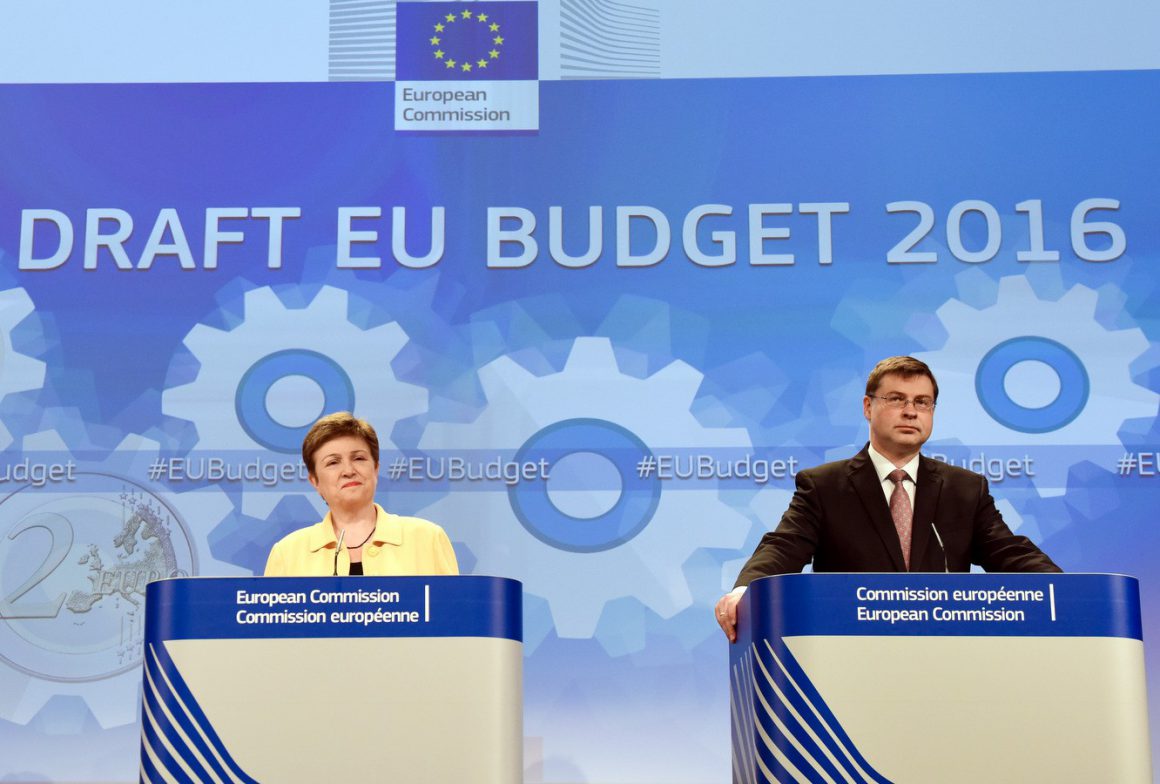On 27 May the European Commission presented its draft budget of €143.5 billion for 2016. The proposal, which requires approval from the EU Parliament and EU member states, focuses on creating jobs and growth, boosting innovation, dealing with the migration crisis, and further strengthening the EU’s role in the world. Spending hawks in Brussels and across the EU seemed pleased with the fact that the budget remains at the same level as for the current year.
Kristalina Georgieva, Commission Vice-President for Budget and Human Resources, submitted the draft for approval. The Commission adopted the proposal as the first step in a procedure that requires the go-ahead from both the European Parliament and the Council. As is the case with every yearly budget, the Commission’s proposal must remain within ceilings determined in advance by the Multiannual Financial Framework, laid down in 2013 for a seven-year period. The Framework, which requires the unanimous approval member states, sets the maximum amount of spending in the EU budget each year in the form of payment and commitment appropriations.
Looking at this year’s draft budget, the Commission targets employment and competitiveness by availing almost €67billion to sectors that encourage research and innovation. Agriculture and Fishing subsidies will take up €55.87 billion, while the Common Foreign and Security Policy about €10 billion. Research programs such as Horizon witness an increase of 11.6% from last year, with its funding stacking up at €10 billion for 2016. Also Erasmus +, the EU run program for education, training, youth and sport, gets a 30% boost.
The Commission seems poised to deal with the migration problem and its wider impact on EU countries. To this end, the proposal includes a funding boost for Triton and Poseidon Operations in the Mediterranean Sea. It allocates €833 million for Asylum, Migration and Integration Fund and the Internal Security Fund, “the two main sources of funding to the measures under the EU policy on migration and security.” There is also a big increase in funding the EU’s capacity to respond to external crises, such as the ones in Ukraine and in Syria. A total of €9.5 billion has been allotted to the European Neighbourhood Instrument and the Development Cooperation Instrument.
The biggest loser of this budgetary plan is the Cohesion Fund, which includes spending on infrastructure, energy efficiency, and other investments in the bloc’s least developed countries. The Fund is expected to diminish by 16% in 2016. The European Globalisation Adjustment Fund – which offers subsidies to employees losing their jobs to competition oversees, also took a hit and will see a 10% drop in commitments and 7% in payments.


